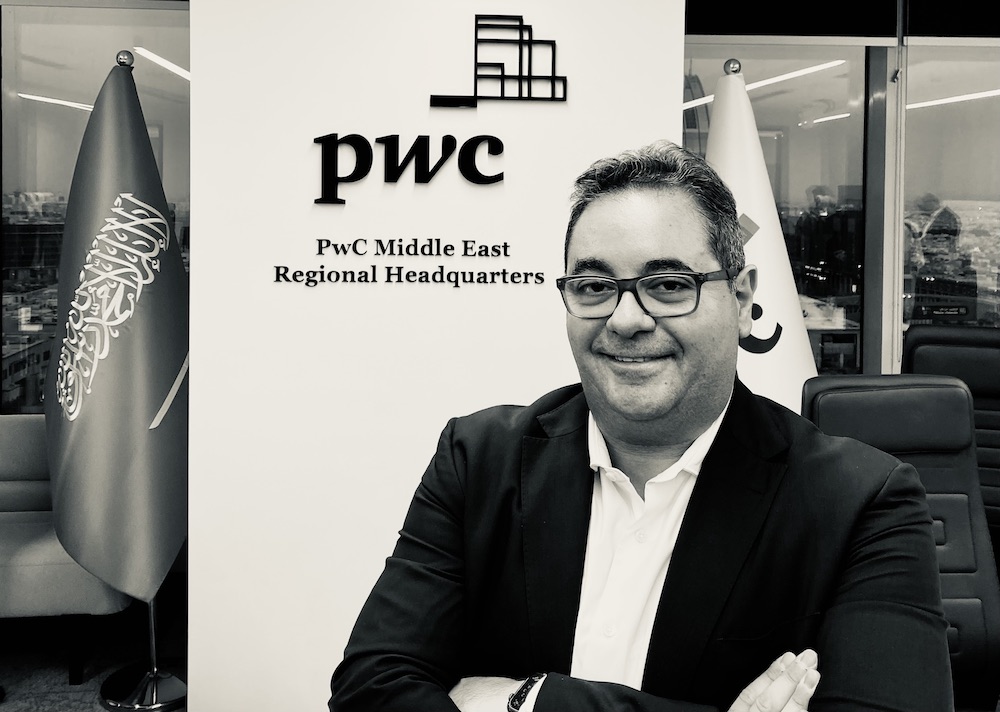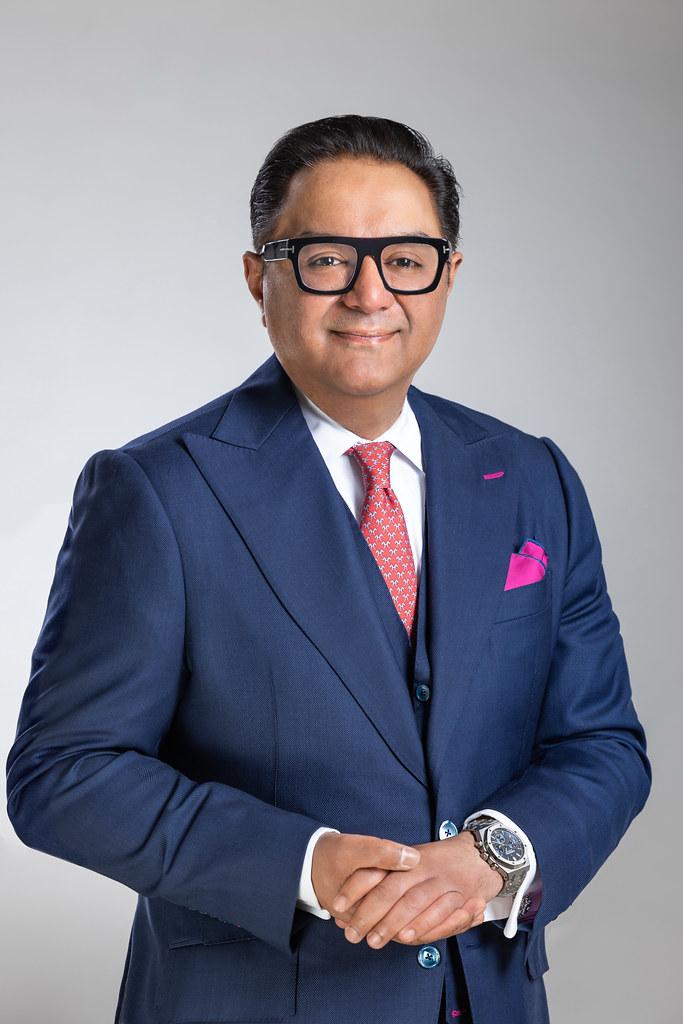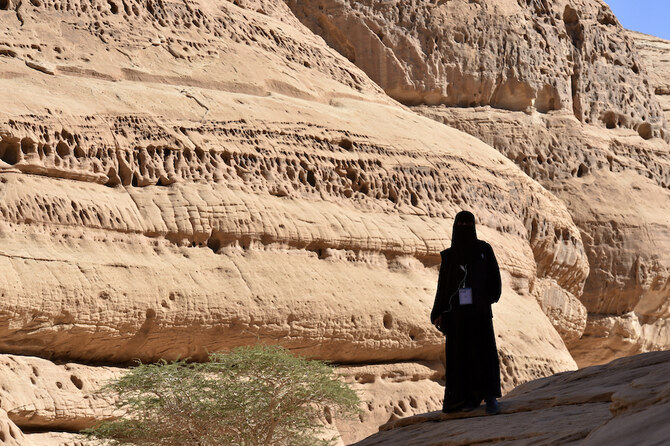RIYADH: As Saudi Arabia embarks on an ambitious journey toward a thriving economy, the nation is uniquely positioned to harmonize the conservation of its rich cultural heritage with the development of vibrant business opportunities.
The Kingdom is committed to various initiatives, such as cultural tourism projects and the revival of artisanal craftsmanship, which not only safeguard its diverse cultural tapestry but also drive economic growth.
This approach showcases the symbiotic relationship between tradition and innovation, demonstrating how honoring cultural heritage can foster sustainable development and enhance Saudi Arabia's global influence.
Under the Vision 2030’s Quality of Life Program, the nation is transforming with rapid developments in the cultural sector among others.
This comes as the cultural sector is expected to contribute more than $47.9 billion to the Kingdom’s gross domestic product by 2030.
In the Quality of Life Program 2023 annual report, Saudi Crown Prince Mohammed bin Salman said that the Kingdom is striving to cultivate a deep sense of pride in the nation and actively contribute to global development and progress, across economic, environmental, cultural, and intellectual dimensions.
The report further revealed that in 2023, the Ministry of Culture targeted 108,010 employees in the Saudi cultural sector, but recorded 216,878 workers during the year, reflecting an achievement rate of 201 percent.
The Kingdom also aimed for nine Saudi participants in international cultural events, but actually witnessed 32.
When it comes to the number of cultural events days, Saudi Arabia was targeting 2,093 in 2023 but recorded 3,934 – reflecting an achievement rate of 188 percent.
As for the number of cultural facilities, the Kingdom was aiming for 41 in 2023 but achieved 45.
Cultural tourism’s contribution to economic development
Cultural tourism has been essential in diversifying the Kingdom's economy by boosting local hospitality, retail, and service industries, while also enhancing Saudi Arabia's global standing in cultural diplomacy.
“The revitalization of cultural landmarks such as AlUla, Diriyah, and UNESCO-listed sites has significantly enhanced Saudi Arabia’s international appeal, repositioning the Kingdom as a global destination not only for religious pilgrimage but also for its rich history, arts, and traditions,” Patrick Samaha, partner at Public Sector at Kearney Middle East & Africa told Arab News.
“With 30 million international tourists visiting in 2023, the influx has boosted local businesses in hospitality, retail, and services, generating new jobs, particularly in regions where tourism was previously underdeveloped,” Samaha added.
The Kearney partner went on to add that the Kingdom’s active participation in cultural diplomacy has resulted in stronger global relationships and a growing international appreciation for its rich heritage.
“This is reflected in the government’s significant investment in cultural landmarks, which will further open opportunities for hosting international events, forums, and conferences. Without a doubt, Saudi Arabia is well on its way to becoming a leader in cultural tourism,” he said.
There is no doubt that the Kingdom is working to diversify its economy by attracting visitors to explore its diverse landscape and rich cultural heritage.
Tamer El-Leisi, consulting partner at PwC Middle East told Arab News that the Kingdom has reported the highest growth among G20 countries in 2024, gaining international recognition, fostering cross-cultural understanding as well as enhancing the country's global image as an open and welcoming destination.
“It has also supported the preservation of historical sites and provided income opportunities for local artisans,” he added.

Tamer El-Leisi, consulting partner at PwC Middle East. (Supplied)
The PwC Middle East consulting partner said this work has a “profound impact” on economic growth, enhancing the labor market, and supporting local businesses.
“As cultural tourism grows, so does the demand for professionals in various sectors, such as hospitality, entertainment, and creative arts, which in turn boosts employment and economic growth,” El-Leisi added.
He highlighted that as a result of these efforts, the number of international and domestic tourists exceeded 100 million tourists in 2023, spending more than SR250 billion ($66.6 billion).
“These numbers have even increased during the first quarter of 2024 by 10 percent with an increase of around 17 percent in spending. By 2030, the tourism sector aims to account for over 10 percent of the country’s GDP,” he said.
As Saudi Arabia strives to become a global center for cultural tourism, building international partnerships with other nations, cultural institutions, and global organizations is crucial for success.
Balancing cultural heritage and business growth
The Saudi government has been crucial in safeguarding the Kingdom’s heritage while promoting an economically sustainable sector by supporting the heritage ecosystem, attracting private investment, and developing local talent.
According to Samaha, Saudi Arabia has recognized the importance of preserving its heritage at a time when it is embracing global cultural exchange, which is why heritage plays a central role in its Vision 2030.
“Rightfully so, key government initiatives have focused on boosting the socio-economic impact of heritage and the broader cultural sector, aiming to create a sustainable industry that appeals to younger generations. To achieve this, the Kingdom has developed a robust ecosystem, composed of both government and non-government entities, mandated to unlock the socio-economic potential of the sector and attract private investment,” the Kearney partner said.
He added: “For example, the creation of the Heritage Commission under the Ministry of Culture has enabled heritage sites to become catalysts for economic activity and offers various training programs to develop local talent in the heritage field.

Shahid Khan, partner and global head of Media, Entertainment, Sports, and Culture at management consulting firm Arthur D. Little.
Samaha continued to note that the Royal Institute of Traditional Arts was established to nurture talent in local crafts and generate business opportunities for artists through incubators and apprenticeship programs.
“These are just two examples of the many impactful initiatives being implemented by the Saudi government,” he said.
Undoubtedly, the Kingdom has demonstrated a firm commitment to cultural heritage by employing innovative and forward-thinking strategies to safeguard and preserve it for future generations. Those efforts foster a strong connection between cultural preservation and economic development.
“This is evident in many ways. For instance, the rehabilitation, restoration and promotion of historic sites and cultural attractions is encouraging exploration of cultural sites. Meanwhile, an emphasis on cultural tourism is strengthening national identity, fostering unity and shared purpose among the population,” El-Leisi said.
He stressed that local communities are actively engaging with tourists, not only enriching visitors’ experiences but also supporting community development.
“Furthermore, investing in sustainable tourism practices is ensuring that the country's cultural heritage is preserved for future generations while minimizing the environmental impact of tourism activities. The Saudi government is focusing on responsible tourism, implementing green initiatives, and supporting eco-friendly businesses in the tourism sector,” the PwC partner added.
Preservation cultural heritage to attract investments
The preservation of Saudi Arabia’s cultural heritage plays a key role in attracting investment, fostering sustainable growth, and enhancing the Kingdom’s global standing, aligning with Vision 2030.
“By protecting heritage sites, especially those recognized by UNESCO, Saudi Arabia boosts tourism and diversifies its economy. Traditional crafts and cultural practices also stimulate the creative industries, drawing investment into cultural and luxury sectors,” Shahid Khan, partner and global head of Media, Entertainment, Sports, and Culture at management consulting firm Arthur D. Little, told Arab News.
“Globally, these efforts enhance Saudi Arabia's cultural diplomacy and soft power, strengthening its influence in international affairs. Through these initiatives, the Kingdom builds a sustainable, diversified future while positioning itself as a cultural leader on the world stage,” Khan added.
Ongoing initiatives that effectively blend the preservation of cultural heritage
Saudi Arabia is effectively merging the protection of its cultural heritage with economic growth through important initiatives outlined in Vision 2030.
“AlUla is being transformed into a global tourist destination, preserving ancient tombs and relics while generating jobs and revenue through luxury tourism. Similarly, Diriyah, the historic birthplace of the Saudi state, is undergoing restoration, combining heritage conservation with commercial and luxury developments,” Khan said.
“The Red Sea Project focuses on eco-tourism, safeguarding both natural and cultural heritage while creating employment and diversifying the economy,” he added.
The Arthur D. Little partner went on to note that in Jeddah, the restoration of its UNESCO-listed historic district is boosting tourism through traditional markets and cultural festivals.
“These projects illustrate how Saudi Arabia is harmonizing tradition with modern business opportunities to foster sustainable growth. The region can further draw inspiration from countries like Japan and Morocco, which have successfully promoted their cultural heritage while reaping significant economic benefits from tourism and cultural industries,” Khan said.




























